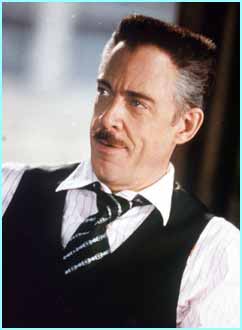ShadowBoxing
Avenger
- Joined
- Sep 10, 2004
- Messages
- 30,620
- Reaction score
- 2
- Points
- 31
For those of you who care, or remember the Cold War, or post-Cold War era politics in Russia...Boris Yeltsin has passed on.
The Rise and Fall of the Drunken Czar
By Jörg R. Mettke in Moscow</I>
Boris Yeltsin's finest moment came in August 1991, when he stood on a tank in Moscow and opposed the hardline leaders of a coup against Gorbachev. But the former Russian president, who died Monday, ended his period in power in disgrace.
 Former Russian President Boris Yeltsin died Monday at the age of 76.
Former Russian President Boris Yeltsin died Monday at the age of 76.
Boris Yeltsin, who died Monday at the age of 76, was in many ways a paradoxical figure. His professional specialization was construction, but his biggest passion was tearing things down. During his rise through the ranks of the party and government apparatus, he showed a penchant for playing the common man who fights against privilege, yet he savored the Kremlin's pomp and circumstance as if it had been his God-given right.
He was an avowed enemy of corruption and nepotism, and yet a giant network of clans and cliques, possessing piles of -- often ill-gotten -- cash, grew in the shadow of his throne. He hated the shadowy men of the KGB, and yet he groomed its most pliable agent, Vladimir Putin, to be his successor.
Boris Yeltsin, who personified the contradictions in Russia's political meandering between reform and restoration in the late 20th century, is no more. The first president of post-communist Russia died Monday in Moscow of sudden heart failure after a long period of disgrace and decline.


The Rise and Fall of the Drunken Czar
By Jörg R. Mettke in Moscow</I>
Boris Yeltsin's finest moment came in August 1991, when he stood on a tank in Moscow and opposed the hardline leaders of a coup against Gorbachev. But the former Russian president, who died Monday, ended his period in power in disgrace.
 Former Russian President Boris Yeltsin died Monday at the age of 76.
Former Russian President Boris Yeltsin died Monday at the age of 76.Boris Yeltsin, who died Monday at the age of 76, was in many ways a paradoxical figure. His professional specialization was construction, but his biggest passion was tearing things down. During his rise through the ranks of the party and government apparatus, he showed a penchant for playing the common man who fights against privilege, yet he savored the Kremlin's pomp and circumstance as if it had been his God-given right.
He was an avowed enemy of corruption and nepotism, and yet a giant network of clans and cliques, possessing piles of -- often ill-gotten -- cash, grew in the shadow of his throne. He hated the shadowy men of the KGB, and yet he groomed its most pliable agent, Vladimir Putin, to be his successor.
Boris Yeltsin, who personified the contradictions in Russia's political meandering between reform and restoration in the late 20th century, is no more. The first president of post-communist Russia died Monday in Moscow of sudden heart failure after a long period of disgrace and decline.




